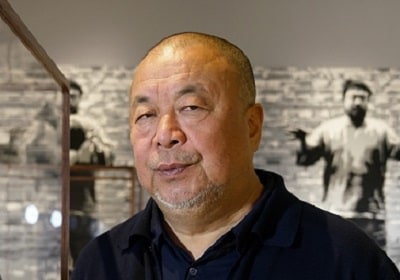
The Chinese artist, activist and filmmaker, Ai Weiwei is one of the most influential cultural figures working today. A truly global artist, his work encompasses everything from the Syrian refugee crisis to the destruction of the Brazilian rainforest. But it is China – its past, present and future – that is the primary focus for much of Ai’s work, a focus that led to his imprisonment and exile. The son of renowned poet Ai Qing, his early years were marked by hardship, as his father had been denounced by the Communist government. In 1981 Ai went to live and study in the United States and returned to China in 1993. After the Sichuan Earthquake of 2008, he and his team gathered the names of more that 5,000 children who had died as a result of shoddily built schools and published them on his blog. These activities culminated in his secret detention for 81 days in 2011 without any formal charges. It was an experience that Ai turned into a powerful series of art works and eventually led him to leave China in 2015. Now based in Europe, through his extraordinary art and determined activism, Ai Weiwei remains one of the world’s most prominent advocates for free expression and human rights – a testament to the potential for art to re-imagine the world in which we live.